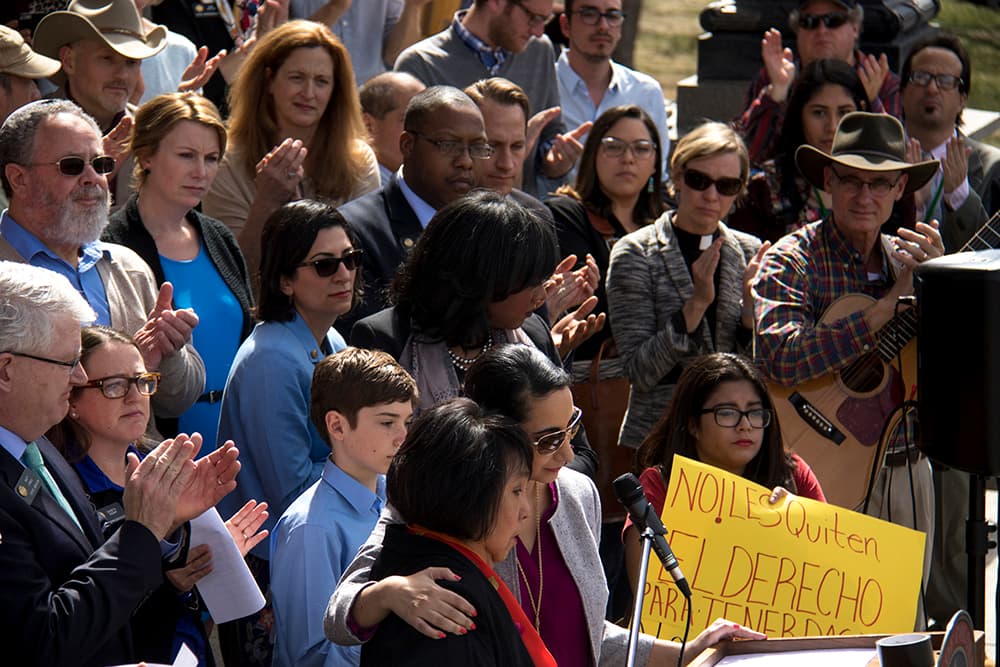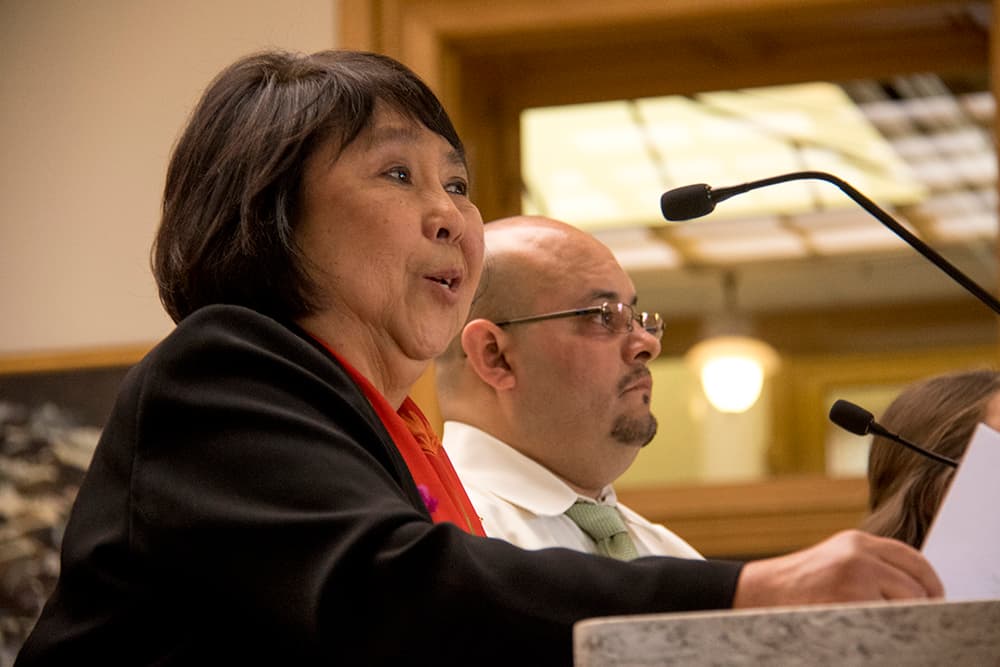
The Colorado House Judiciary Committee on Thursday night voted in favor of a proposal that brought together people who said they fear they'll be targeted for their religion, nationality or immigration status. Democratic and Republican representatives, meanwhile, found themselves arguing the opposite of their traditional positions on states' rights.
The Ralph Carr Freedom Defense Act still faces a long road ahead. If it becomes law, it would make it illegal for Colorado to assist with the creation of any future Muslim registry (which Trump has openly discussed) or internment camps, or with any other efforts to identify and detain people based on race, ethnicity, national origin or immigration status.
"This bill, just like the governor it was named after, protects Coloradans from the overreach and terrorizing of the federal government," said state Rep. Joe Salazar, who co-sponsored the bill in the House with Rep. Daneya Esgar of Pueblo.
Rep. Cole Wist, who voted against the bill, said he appreciated the "states' rights" message and found the concept of registries "abhorrent." But, he added: “I think this bill would require that Colorado defy federal immigration law and I’m concerned about whether or not it’s constitutional."
The bill was approved 7-4 in a party-line vote, with Democrats supporting and Republicans opposing. The House – where the bill has its next vote – also has a Democratic majority. The Republican-majority Senate will be a taller order.
"Being from Pueblo, born and raised, during the entire campaign, the words that were directly stated out of our now-president's mouth drove fear into many of my community – real fear," Esgar said.
One speaker referred to her experience in the internment camps where the U.S. sent Japanese-Americans during World War II. One woman spoke of the fear of seeing thousands of people detained under NSEERS, a post-9/11 system that mostly tracked Arab and Muslim men. Trump and his circle have openly talked about the idea of a Muslim registry.
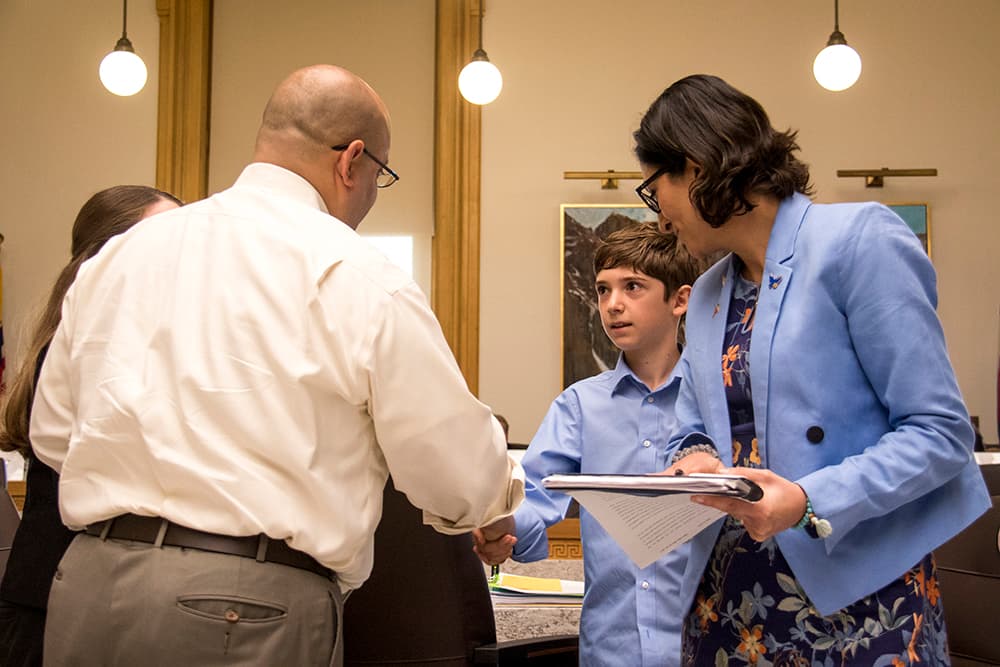
"These were law-abiding Iranian-American citizens, green card holders and visa holders, who went in to abide by the laws to register ... Many of them were shackled on sight," said Pantea Beigi, who was 19 at the time. "... There was a buildup to all of these registries and to all of these horrific events in history. ... We’ve unfortunately been witnessing the build-up."
The bill's supporters took pains to establish that the proposal's policy is meant to keep the state out of enforcing non-criminal matters, such as immigration offenses.
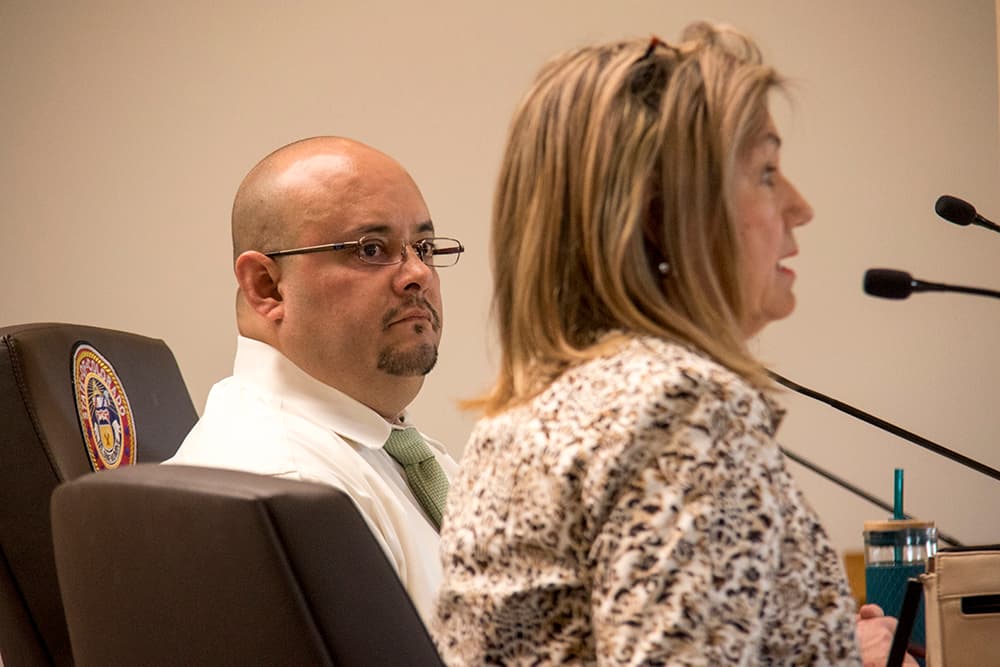
One opposed person, Charlene Hardcastle, said she feared that no matter how it was worded, the perception of Colorado as a "sanctuary state" would draw "illegal criminals" who had just left "jails throughout the country." She was particularly fearful because of a recent murder in which one suspect was undocumented.
"Can I get on the subway late at night, or any time of the day?" she asked.
Wist questioned whether its constitutional arguments applied to people without U.S. citizenship.
Salazar said that his bill was based soundly on Supreme Court decisions, including Arizona vs. United States.
"The Supreme Court said very clearly that it’s not within the state’s power to control immigration," he said. "That’s why we’re stepping away from it. Go ahead and control it if you want. That’s within your rights. But you're not going to commandeer and you're not going to force us to engage in immigration enforcement."
Denise Maes, public policy director for the American Civil Liberties Union of Colorado, said that the bill was an appropriate defense against a federal government that may place more enforcement demands on states and cities.
"We don’t have to look very far to know that the federal government is in fact now thinking of some of those programs," she said.
No representatives of law enforcement spoke at the hearing, but Salazar said the Colorado Association of Chiefs of Police was "neutral" on the bill following a recent amendment. The group later confirmed that through a spokesperson.
Rep. Yeulin Willett asked whether Salazar had appropriate permission from Carr's family or affiliated organizations to use his name. Salazar said he received an email from a nephew of Carr supporting the bill.
“Let’s pump the brakes a little," Willett said. "Let’s not get into federal issues."
For a deeper dive on the bill itself, read Erica's earlier explainer. Read on here for an explanation of the action.
Earlier in the day:
About 100 people stood behind District 31 Rep. Joe Salazar on the Capitol steps as he opened a press conference for the bill.
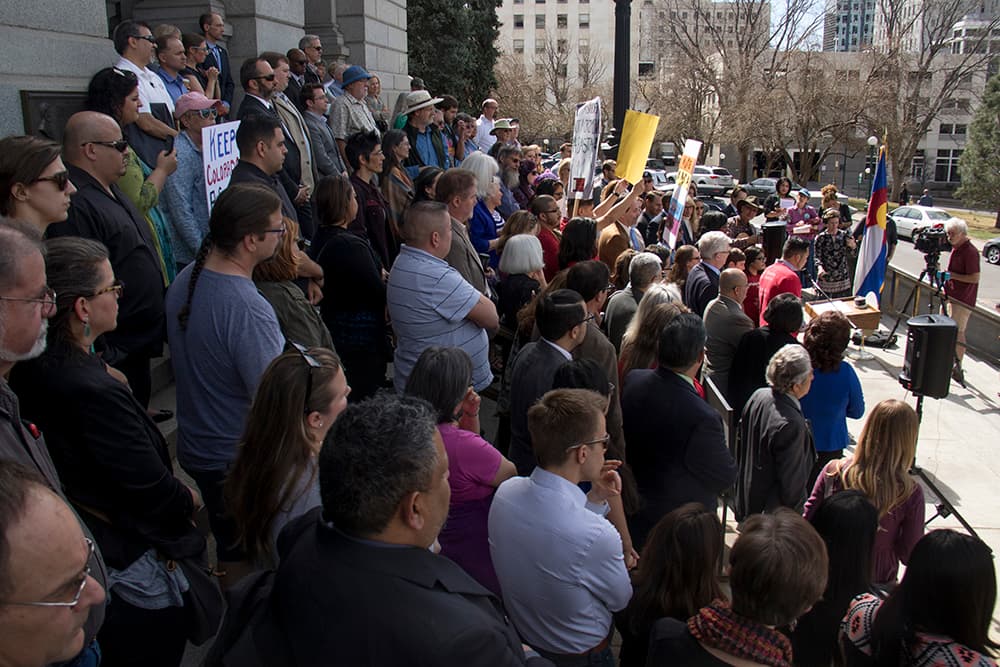
The legislation, he said, was named for Ralph Carr, a "conservative, Republican governor out of the Eastern Plains of Colorado who stood up against the anti-Japanese sentiments back in the 1940s," referring to Carr's resistance to the policy of detaining Japanese-Americans.
Salazar didn't hold the spotlight for long.
"We're here for community," he said, as he handed off the mic to a series of speakers.
Among them was Jo Ann Fujioka, who recounted her family's experience in domestic American concentration camps during World War II.
"My family was sent by train, guarded by armed soldiers, to Poston, Arizona," she remembered. "We were warned not to go near the fence or we could be shot."
Fujioka was brought back to center stage when Iman Jodeh of Meet the Middle East addressed the crowd about present-day concerns.
"I am Jo Ann. I am her 50 years later," Jodeh told the crowd while hugging Fujioka. "If Muslims are forced to go to an internment camp or register in 2017, then this is a disgrace on our forefathers and what they stood for."
Kevin Beaty contributed to this report.
